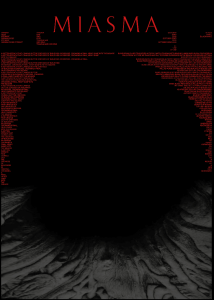Lou Drago signs off in their email with a signature that reads, “Please note the use of a lowercase ‘i’ is intentional in my writing to reject the way English language privileges the self above others”. It’s an addendum that encapsulates the Berlin-based artist’s personal and political beliefs, ones informed by and building upon the gender abolitionist, anti-naturalist and intersectional ideas of Laboria Cubonik’s Xenofeminism. “It’s difficult to say how much influence it has on me now,” they write via email, about their very intentional approach to working collaboratively as an artist, curator, writer and radio producer on the Cashmere Radio show ‘Transience‘. “I would say it’s one important puzzle piece alongside many other influences. Whereas earlier XF was the direct subject of my work, now it’s part of the mechanism guiding my life.”
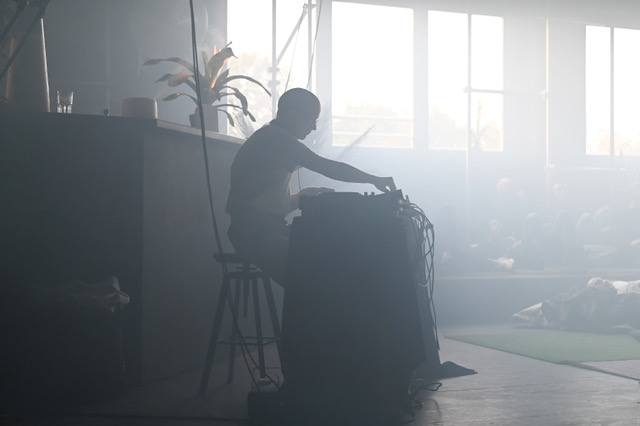
DJ-ing the upcoming Borshch Magazine ‘Dark Side’ issue launch at Berlin’s Traumabarundkino on February 15, some of Drago’s interests lie in the space where—in the words of philosopher Susanne Langer—”Music makes time audible”. The artist’s ‘Suspending Time: Meditations for accessing alternate space/time in music’ text explores the relationship between mindfulness and non-linear listening, and its capacity for easing the burden of conscious thought. Their screening and panel following the theme of ‘Escapism’ at 3hd 2019 similarly examined both the positive and negative potentialities of seeking transcendence.
This prudent perception of the multilateral nature of critical thought appears to inform the entirety of Drago’s practice. One of their more expansive ongoing projects is the XenoEntities Network (XEN) platform. It’s organized with Pedro Marum and Zander Porter, and includes a range of cross-disciplinary programming around intersections of queer, gender, and feminist studies with digital technologies. “Some uniting themes across all of my work are to do with collectivity, and forming connections as a way of countering neoliberal strategies toward further individualisation,” writes Drago, whose theories for opposing colonial patriarchal systems include, “enacting and propagating intersectional affinity politics as a tool to reunite the Left”. In light of these vast and complex efforts towards “a politics for the many”, Drago took the time to discuss notions of self-care, solidarity and the the myth of emancipatory technology. Below is an abridged version of that correspondence—lowercase ‘i’ included.
**Your work exists specifically at this space between art, technology, music and even philosophy is very interesting to me, it’s obviously somewhat in line with a xenofeminist position, how much influence does that mode of thought have on your work and way of life?
Lou Drago: For quite some time i considered myself a feminist, but the iterations of feminism that i knew in the early 2010s were not quite aligning with some ideas that were important to me, specifically concerning gender abolitionism, anti-naturalism and intersectionality. In this sense, reading Xenofeminism: A Politics for Alienation was really seminal for me as it brought together a much more progressive way of thinking about feminism; a politics for the many. It named a politics that i was trying to piece together for myself but couldn’t quite articulate.
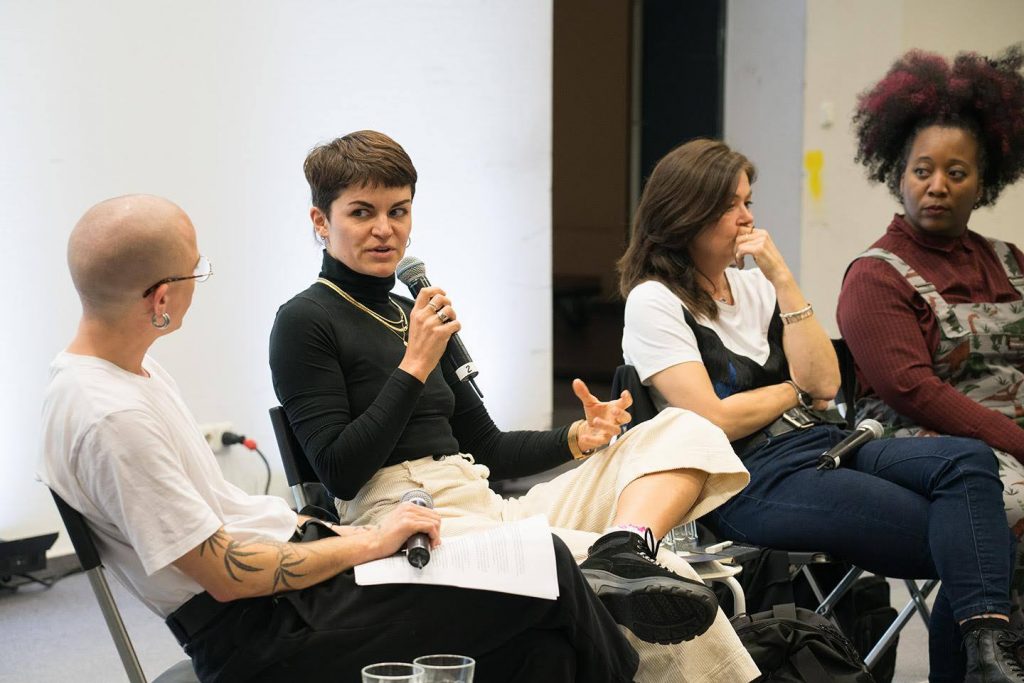
**I’m interested in your relationship to technology, both philosophically and pragmatically. It might be a silly question given your practice, but what do you see as its radical potential (in a nutshell)?
LD: I’m curious to know why you say ‘given your practice?’ 😉 It’s an interesting point considering one collective i am a part of, XEN, that often looks at technology (and its intersections with feminist, queer and gender theories,) but we’re very critical of it. There are many exciting things happening, from open source software, appliances for helping folks with different abilities, to sustainable technologies, to crowdsourcing etcetera.
However, if we’re thinking about the radical potential then i am quite wary of putting too much expectation on technology, as in itself it will not change anything. The technology can exist, but it’s up to the people who design, finance and (mis)use said technology; without changes happening at the social level the technology itself has no radical potential. We have seen this time and again. The way industrialisation hasn’t lead to workers emancipation. The way various internet platforms monitor and monetise its users, and the way corporations are able to censor certain subjectivities or create echo chambers—technology is a mirror for society. I’m skeptical because so much of technology is designed to sedate us, further isolate us and propagate capitalist objectives. So it’s a matter of being cognizant of what technologies are really offering us—despite how opaque getting that information can be. Perhaps, a radical potential could be at the level of organisation and communication. For example the Telegram app and AirDrop functions being used during the Hong Kong riots were a pretty radical use of technology.

**One of the points in A Politics of Alienation that grabbed me was this idea ‘Xenofeminism is a rationalism’. In what I’ve encountered in your work, there is some engagement with Buddhist, perhaps even New Age (I could be wrong), schools of thought. What does this xenofeminist rationalism look like to you?
LD: Canonically history of thought/ philosophy/ science is dominated by men, and in the global north white men. But this is only because patriarchal systems have been so thoroughly prevailing that women and AFAB [assigned female at birth] people have not had equal opportunities to have access to these fields. I think that XF rationalism is an assertion that rationalism can come from female voices, indigenous, non-white, differently abled or transgender voices.
I see XF rationalism as a claiming of rationalism and de-naturalising the associations between men and rationalism (often in opposition to women and emotionalism). Patriarchy’s link with rationalism was deeeeeeply engrained in me from a young age, and it has been a personal project to try and de-couple these associations. That’s also to allow myself to see value in sensitivity, emotion, intuition, vulnerability, and also unlearn seeing these as feminine traits. Actually, this was one of the impetuses for my current radio show, Transience, in which i set out to define a sound using a selection method that is totally intuitive and embracing sensitivity.
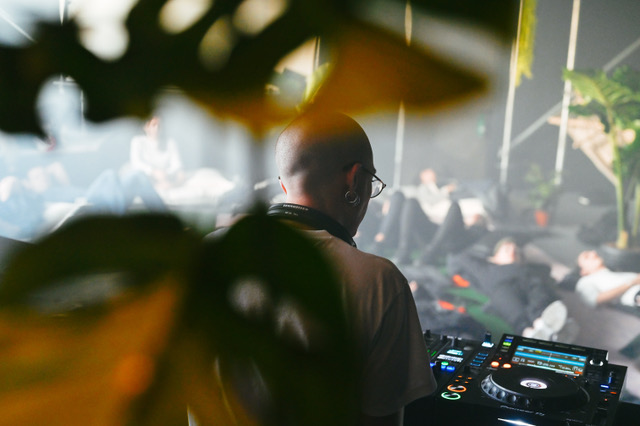
In terms of my engagement with Buddhist texts, it’s interesting you mention that because i had never thought about these two subjects in relation to one another! In a similar way to music, there are ideas within Buddhism that resonate on a profoundly intuitive or experiential level, and perhaps i only became open to these through allowing myself to give importance to the non-rational.
**I’m also very curious about this focus on transcendental modes and practices, like meditation and Buddhism, what do you see as it’s potential within contemporary culture and politics and how did you come to it in the first place?
LD: Within contemporary Western culture, i think a serious investment in learning and practicing meditation could be highly beneficial. A bit like a good LSD trip, it has the potential to expand people’s understanding of their existence and increase empathy, which seems to be something lacking under the fast pace and individualised mentality of neoliberal capitalism. It also offers a chance to exist in another temporality, to stop time in a sense, which unless you seek certain practices for this means, is something that very rarely happens otherwise.
It’s also, at least for me, an important tool for accepting and coping with the world. I had heard about Vipassana meditation in passing many years before i got around to doing it. It sounded like such a profound and challenging experience that i was very curious to know if i could do it. A 10-day silent meditation retreat was certainly a pretty intense way to begin meditation, but i’m glad to have jumped in the deep end.
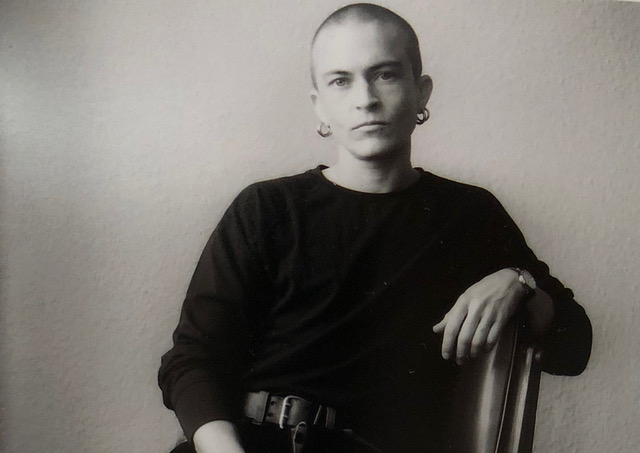
**Maybe this question is a bit zeitgest-y but still relevant I believe, particularly given its relationship to capitalist co-optation. These things mentioned before can be easily dropped into the highly marketable ‘self-care’ bracket, what are your thoughts on the direction these pseudo-spiritual health practices have taken, and what’s the difference between what you’re proposing and what mainstream consumer culture promises?
LD: I’m glad you ask that, because the commodification of meditation is something i’m highly averse to and i’m conscious to avoid in my own work. I think TM [Transcendental Meditation] can be an example of a commodified co-option. It’s expensive, therefore inaccessible to most, and the technique is something made famous by its ability to be done anywhere, but i don’t know if meditation should be ‘easy’, ‘effective’ or only for the elite.
I think the difference is in the intent and who is behind it. I think self-care is certainly important, and especially as a ‘marginalised’ person, coping with a society that oftentimes feels against you isn’t a light feat, but it needn’t cost much money. Sometimes it’s just about saying no to going out, or no to working over-time or eating a balanced meal.
**I’m interested in your stated aim of achieving a more social politics in light of the divisive outcome of identity politics on the Left, can you tell me a little more about what you’ve seen happen and a possible remedy?
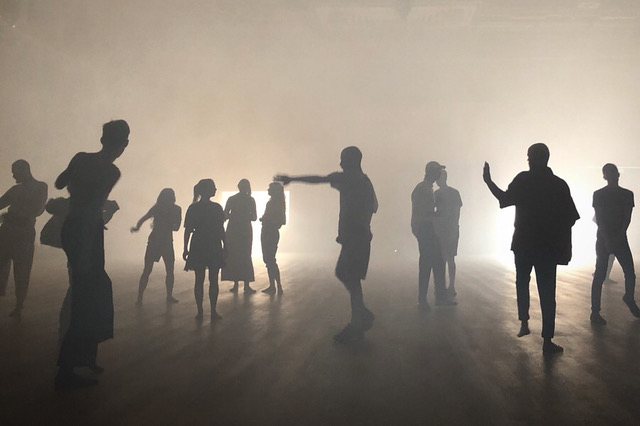
LD: It’s difficult to contextualise where this ‘Left’ is, as it differs in every country. Growing up, i always had a strong affinity with the UK and Mark Fisher’s writings on the subject have been a huge influence. However, i know they also resonate with people in the US, across Europe, Australasia and further.
For lack of space here i would strongly urge folks to check Fisher’s Exiting the Vampire Castle, which demonstrates how the intellectual ‘Left’ have become obsessed with calling-out and moralising, which has lead to the alienation of many, and absolute fear from others to speak up. In societies where we are othered, it is understandable to want to surround oneself with similarly-inscribed people, for solidarity and to work together to achieve better living conditions. But, while feminist, queer, racialised, indigenous, immigrant, differently-abled and transgendered identities have solidified as distinct identities (with intersections creating additional groups), the ‘Left’ has failed to engage the working class. The alt-right has taken advantage of this through fear-mongering (with the subject usually being aforementioned identities)—clearly evident with the Brexit outcome.
Of course, these divisions are of great benefit to the ‘Right’, but one way of combatting this is by building real connections through affinity not identity. As Adam Curtis says, through “connect(ing) with other groups who are oppressed in different ways but feel equally uncertain and isolated in the modern world of harsh power”.
I’m currently working on something called’radical sociability’, which will go in-depth about this particular topic, and will speculate about ways that we can enact intersectional affinity—including a re-integration of the working class. With Asad Haider, i believe that to stand a chance at averting further global ecological and social crises, it’s imperative to bridge “these rigid divisions between so-called identity categories like race and gender and the category of class”, and to surpass them in “a real, practical movement.”**

